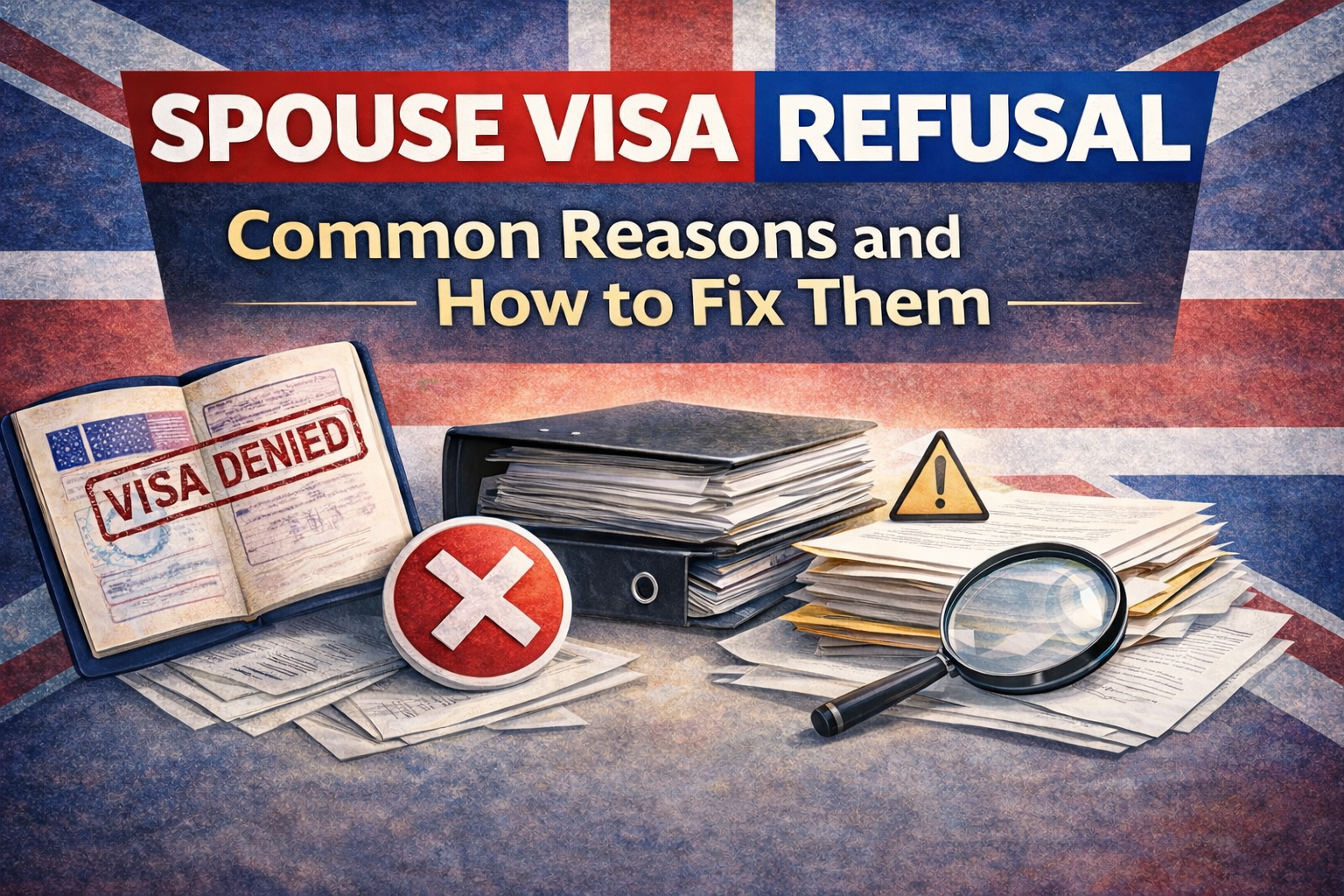What Is the Difference Between Indefinite Leave to Remain and British Citizenship?
When it comes to settling in the UK long term, two key statuses are often mentioned: Indefinite Leave to Remain (ILR) and British Citizenship. While both represent important milestones for migrants, they are not the same — and understanding the difference is essential if you’re planning your future in the UK.
In this blog, we’ll break down the practical, legal, and long-term distinctions between ILR and citizenship, explain how each is obtained, and help you decide which step is right for your circumstances.
What Is Indefinite Leave to Remain (ILR)?
Indefinite Leave to Remain is a form of permanent residence granted to non-UK nationals who have lawfully lived in the UK for a qualifying period. ILR gives you the right to live, work, and study in the UK without immigration restrictions.
Key features of ILR:
- No time limit on your stay in the UK
- Access to healthcare, employment, and education
- Ability to sponsor family members (subject to eligibility)
- Freedom to leave and return to the UK (with restrictions)
However, ILR can be lost if you spend 2 or more continuous years outside the UK, and it does not grant a British passport.
What Is British Citizenship?
British Citizenship is the highest form of immigration status. It grants you full legal rights and responsibilities in the UK and allows you to apply for a British passport.
Key features of British Citizenship:
- You become a British national
- Right to vote in all UK elections
- Right to apply for a British passport
- Protection from immigration control (status cannot lapse due to time abroad)
- No need for future visa renewals or immigration applications
British Citizenship is usually obtained after holding ILR for at least 12 months, or immediately if you are married to a British citizen.
Main Differences at a Glance
| Feature | ILR | British Citizenship |
| Can work/live in UK without restriction | Yes | Yes |
| Can access NHS/public funds | Yes | Yes |
| Can vote in UK elections | No | Yes |
| Can apply for a British passport | No | Yes |
| Can be lost if you leave the UK for 2+ years | Yes | No |
| Subject to immigration control | Yes | No |
| Application cost on average (2025) | £2,885 | £1,630 (citizenship only) |
How to Get Indefinite Leave to Remain (ILR)
You must have spent 5 continuous years in the UK under a qualifying visa route such as:
- Spouse or Partner Visa
- Skilled Worker Visa
- UK Ancestry Visa
- Refugee or Humanitarian Protection
You’ll also need to:
- Pass the Life in the UK Test
- Meet the English language requirement (B1 CEFR)
- Have no serious criminal convictions
- Not breach immigration rules
You can read a full breakdown in our detailed guide: ILR After 5 Years: Step-by-Step Guide
How to Get British Citizenship
To apply for citizenship through naturalisation, you’ll typically need to:
- Hold ILR for at least 12 months (or have Settled Status)
- Pass the Life in the UK Test (if not already passed)
- Prove English proficiency at B1 CEFR level
- Meet the residency requirement: no more than 450 days outside the UK in 5 years
- Be of good character (no serious criminal history)
Applications are made online and processed by the Home Office. If successful, you’ll be invited to attend a citizenship ceremony to receive your certificate.
Should You Apply for Citizenship After ILR?
It depends on your personal goals.
Apply for Citizenship if you:
- Want to travel freely using a British passport
- Plan to vote in UK elections
- Want to avoid reapplying for visas or extensions
- Intend to stay abroad for long periods without losing status
Stick with ILR if you:
- Don’t meet the residency or good character requirements yet
- Prefer to wait for dual nationality options
- Are unsure about renouncing citizenship from another country (if required)
Important: Some countries don’t allow dual nationality. Check with your home country before applying.
What Happens If You Don’t Apply for Citizenship?
You can live permanently in the UK with ILR, but you must:
- Avoid long absences (2+ years abroad could cause you to lose your ILR)
- Renew your BRP (Biometric Residence Permit) before it expires
- Continue to meet immigration conditions if laws change
If you do lose ILR, you may need to apply for a Returning Resident Visa, which is not guaranteed.
Final Thoughts: ILR vs British Citizenship
Indefinite Leave to Remain and British Citizenship both offer long-term security in the UK — but only citizenship offers full legal rights and national identity.
If you’re eligible for ILR now, it’s a significant achievement and a clear path to citizenship later. But if you’re already holding ILR and ready to apply for British Citizenship, it’s worth securing your future with the highest level of protection under UK law.
Legal advice can make the process smoother — especially if you’ve had long absences, criminal convictions, or doubts about eligibility.
Need help deciding your next step? Contact our team of immigration specialists today.





